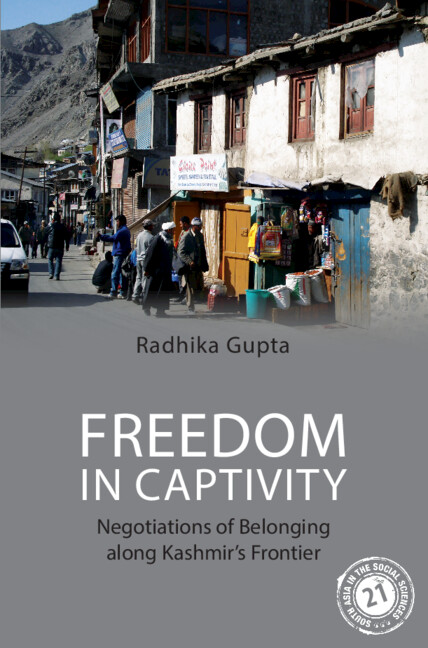The Punjab Borderland
The Punjab Borderland offers a fascinating insight into how the new international boundary between India and Pakistan was made, subverted, and transformed. Dispelling the established historiographical narratives of an increasingly militarised border that presents as the epitome of animosity and a classic example of inter-state tension, this book offers a corrective to these accounts by bringing out narratives of border crossings and social relations built on mutual benefit and trust. It conceptualises the making of the vast contraband as an analytical tool, not merely as borderland societies' modes for evading the state imposition of a partitioned geography on their local lifeworld, but as a catalyst for enabling social mobility and political empowerment for the population involved and a thriving market for consumption in the urban centres. It reveals a 'bottom-up' history of the Punjab border and the invention of the borderland society, narrating a story with local meanings and transnational dimensions.
- Non-security-oriented approach to the borders between India and Pakistan
- Studies contraband as a tool of analysis for a catalyst for enabling social mobility
- Draws on previously unexplored local police records to dispel the myth that the border was closed, even in the wake of the 1965 Indo-Pakistan War
Reviews & endorsements
'This path breaking research presents the world from the Punjab borderland, straddling the states of India and Pakistan. Ilyas Chattha offers us a view from the borderland, where state institutions are malleable to the needs of trade and movement is considered a right, not a concession. From village courtyards to Gold Souks in Dubai and small shops in Birmingham, this book takes us on a journey that confounds, enlightens, and ultimately illuminates, the shady world of border life. Drawing upon border folklore, poetry and on linguistic skills to access local vernacular archives, this research presents a major challenge to any simple understanding of Partition as an event that took place in 1947, rather the evolution of a border and the challenges to its fixity are presented over a period of sixty years.' Virinder S. Kalra, Chairperson, Department of Sociology, University of Warwick
'It is wonderful to read such a closely researched and detailed border history of Punjab. It is indeed a pioneering study. It is full of fantastically interesting specifics and case studies that make the border landscape come to life…Text contains many analytical elements that can really push South Asian border studies into new directions. Congratulations!' Willem van Schendel, Professor of Modern Asian History at the University of Amsterdam
'This work is a pioneering study that adds to the growing understanding that linkages between the Pakistan and Indian Punjabis persisted long after the drawing of the Radcliffe boundary. Ilyas Chattha reveals how smuggling impacted on the local political economy of border areas. Drawing on access to previously unexplored local police records, he dispels the myths that the border was closed, even in the wake of the 1965 Indo-Pakistan War. His findings are highly significant not only for the history of the Punjab region, but for the understanding of the post-independence Pakistan state.' Ian Talbot, Professor in History of Modern South Asia at the University of Southampton
Product details
July 2022Hardback
9781316517956
334 pages
236 × 158 × 25 mm
0.57kg
Available
Table of Contents
- List of Maps and Photographs
- List of Tables
- List of Abbreviations
- Glossary
- Note on Transliteration
- Preface and Acknowledgements
- Introduction
- 1. Making of the Border
- 2. Cross-Border Flows
- 3. Illicit Cities: Contraband Trade between Lahore and Amritsar
- 4. Illicit Global Gold Trade and Wagah – Attari Crossing
- 5. The Making of Contraband Culture: People and Poetics
- 6. The Regulation of Cross-Border Flows, and State Patronage
- 7. Guns, Drugs, and the End of the 'Good Old Days'
- Conclusion: Between Open and Closed Borders
- Selected Bibliography
- Index.







